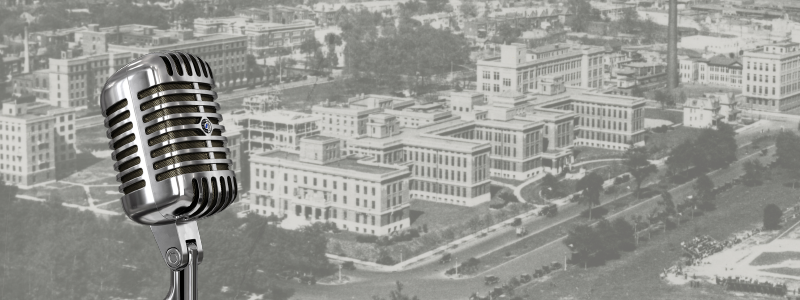
Washington University School of Medicine Oral Histories

John C. Herweg Oral History
Interviewer
Edwin W. McCleskey Ph.D. and William M. Geideman
Loading...
Summary
John C. Herweg was interviewed by Edwin W. McCleskey and William M. Geideman on June 13, 1990, for approximately 45 minutes. Herweg discusses the segregated wards for Black patients in Barnes Hospital and the desegregation of St. Louis Children’s Hospital and Washington University School of Medicine. [Interview 1 of 2]
Scope and Content
John Herweg discusses the segregated wards for Black patients in Barnes Hospital and the desegregation of St. Louis Children’s Hospital and Washington University School of Medicine.
Herweg begins by relating the experiences of medical students at Washington University when he was a student in the 1940s and compares those experiences with contemporary students. He explains how medical students were assigned patients in one of the segregated wards at Barnes, Ward 0400, and the similarities and differences between the wards for white and Black patients.
Herweg then relates the events that led to the removal of the Black wards and desegregation at Children’s Hospital. He discusses his involvement in the desegregation of the medical school and the first Black students to enroll, including the first post-graduate student in 1947. He also explains how the medical school attracts and retains Black students, and what measures have been put in place to help Black students succeed.
Biographical Information: Interviewee
John C. Herweg (1922-2018) was the former Associate Dean for Student Affairs at Washington University School of Medicine. He served in that role from 1965 to 1990. He also served as the chairman of the committee on admissions and as an advisor to medical students. As associate dean, Herweg guided student affairs through new channels, including active recruitment of minority students, providing support for the increasing number of women seeking a career in medicine, and steady direction during student protests.
Herweg earned his medical degree from Washington University in 1945. He served a year-long internship at St. Louis Children's Hospital before serving as a captain in the U.S. Army Medical Corps from 1946 to 1948. Herweg returned to Children's Hospital as the chief resident after his military service.
In 1951, he joined the faculty at the School of Medicine as an instructor in pediatrics. Herweg became the director of the Clinical Research Unit at St. Louis Children’s Hospital until 1970.
Biographical Information: Interviewer
Edwin W. McCleskey, Ph.D. was an assistant professor in the Department of Cell Biology and Physiology at Washington University School of Medicine from 1986 to 1993. His research addressed the biophysical properties of calcium-selective ion channels and the discovery of ion channels that trigger different types of pain. He also taught physiology and neuroscience.
William M. Geideman is an orthopedic surgeon who graduated from Washington University School of Medicine in 1993. He completed his internship and orthopedic residency training at Barnes-Jewish Hospital.
Interview Date
1990-06-13
Collection Identifier
OH103 (PC054-S06)
Length
Approximately 45 minutes.
Restrictions
Users wishing to publish (in whole, or in part) content taken from the audio or transcript of this oral history interview must request, sign, and return a Statement of Use form to the Becker Archives. For detailed information regarding publication and use of this oral history, contact the Becker Archives (arb@wusm.wustl.edu).
Recommended Citation
John C. Herweg Oral History, OH103 (PC054-S06), Bernard Becker Medical Library Archives, Washington University in St. Louis.
Disclaimer
The Becker Archives provides access to this oral history interview as a record of the past. This interview reflects the attitudes, perspectives, and beliefs of the interview participants, which may reflect outdated, biased, and offensive views and opinions. The Becker Archives does not endorse the views expressed in this interview, which may contain materials offensive to some users.



